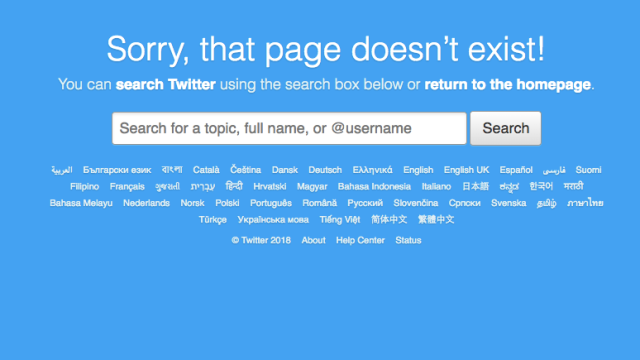Everyone knows what you post online is never truly gone, but rarely are attempts to scrub something from the web quite this ironic – or infuriating.
Photo: Twitter/Screenshot
Last week, the Institute of Electrical and Electronics Engineers History Center tweeted out an apology to author Safiya Umoja Noble after one of its historians shared a glaringly insulting criticism of her work from the organisation’s Twitter account. But it appears the IEEE History Center – which was established to help preserve information on electrical technologies – has since deleted the apology.
Noble, a professor, author, and co-founder of the Information Ethics & Equity Institute, just published her book Algorithms of Oppression: How Search Engines Reinforce Racism, which argues that search engine algorithms are not free from bias and discriminate against people of colour. Alexander Magoun, an outreach historian at the IEEE History Center, attempted to discredit Noble’s findings by tweeting the following from the organisation’s account, according to Inside Higher Ed:
These @Google searches for <black girls> https://t.co/xQdQWoVTZy & <white girls> https://t.co/dEOp7CzKNw don’t quite match thesis; Images for <white girls> arguably far worse @histoftech @STS_News @SIGCIS
To decode this tweet: Magoun was attempting to discredit Noble’s argument that algorithms are biased – specifically, biased in favour of white people – by pointing to a pair of search results cited in Noble’s book. (It’s the portion that appears on the book’s Amazon page.) It effectively boils down an important conversation to some cursory Googling in a flawed manner while also weakly dismissing the work of an expert in the field. And he apparently did it without reading the book.
That tweet has been deleted, and IEEE told Inside Higher Ed that it was “an unauthorised use of an IEEE account” and “is being addressed internally”.
Magoun later apologised through the @IEEEhistory account, where he posted a two-tweet apology addressed to Noble, who responded by saying she had accepted the apology.
Apology accepted https://t.co/V1roQEeIEq
— Safiya U Noble PhD (@safiyanoble) February 5, 2018
However, both the first and second tweet of the apology have been deleted, but you can see screenshots of them below:

Screenshot: Twitter/Eileen Clancy

Screenshot: Twitter/Eileen Clancy
In an email to Gizmodo, Noble called the dustup with Magoun “an unfortunate situation”. She added:
It symbolises how research by scholars who are women of colour is often dismissed, and how little recourse we have. The controversy was sparked by @IEEEHist, and now IEEE has attempted to erase all traces of it, leaving it to appear as if there was never an aggression in the first place.
Unfortunately, digital media platforms – from Google to Twitter or Facebook – work as a de facto record of human activities. The thesis of the book takes up these dynamics, and what it means for digital processes to consistently work against women and people of colour, without our ability to do much about it.
So, Magoun attempted to undermine an expert in her field based exclusively on the book’s marketing materials and not the book itself. It was an infuriating attack on Noble’s expertise in line with, ironically, the bias Noble herself shines a light on in her research.
But the real twist of irony is that the apology to Noble has been scraped from the web by an organisation formed in order to “preserve, research, & promote the history of information & electrical technologies“. Deleting a tweet documenting controversy in the technical community is inarguably a dismissal of the issue as well as a glaring contradiction to the organisation’s purpose of preservation.
We reached out to the IEEE History Center for comment on why it deleted the tweets, but had not heard back at time of writing.
